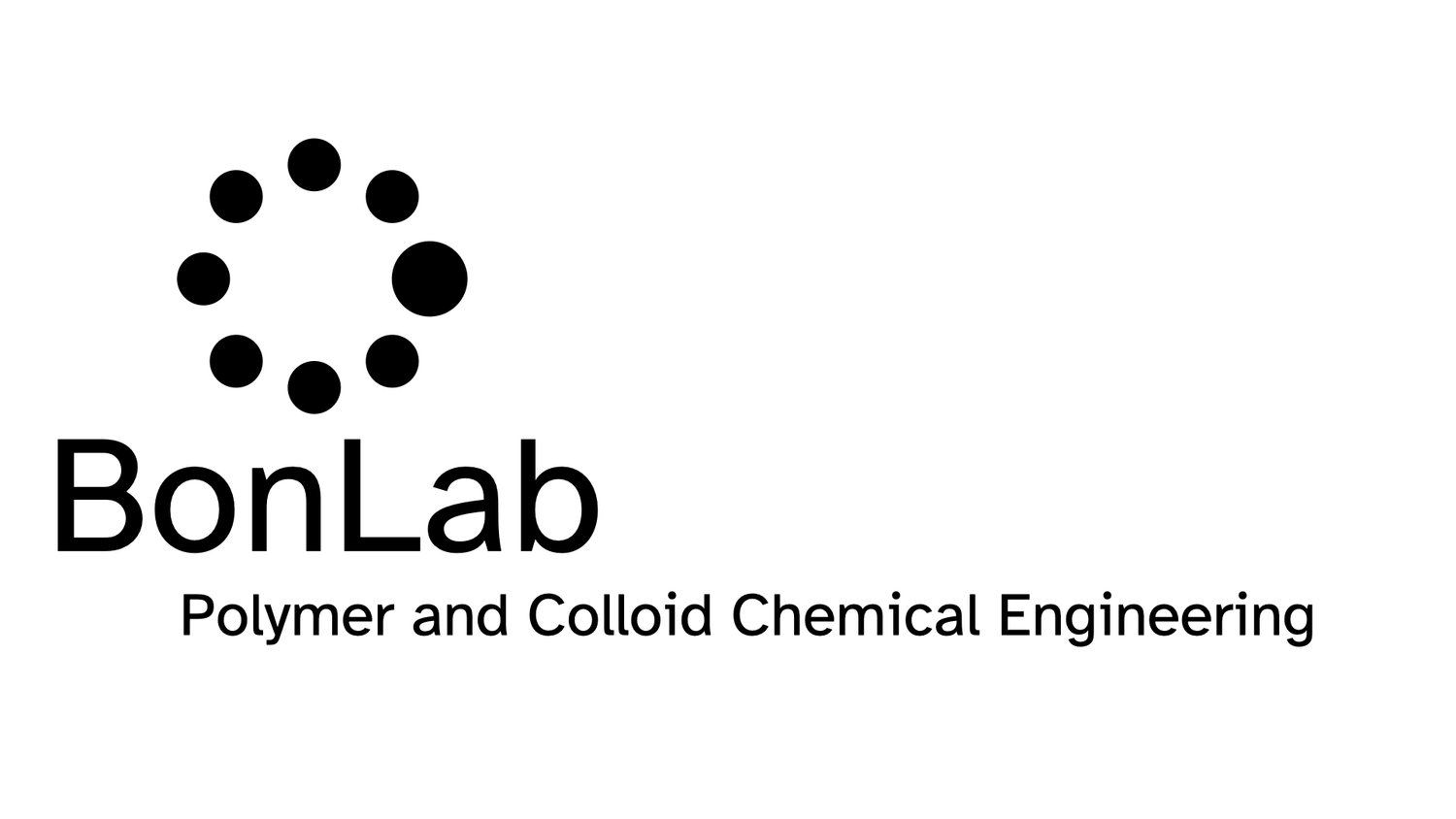We have a long history of making polymer dispersions to be used in waterborne coatings. The polymer colloids, or latex particles, are made by emulsion polymerization. Prof. Joe Keddie from the Physics Department at Surrey University contacted us if we were interested to help out on a bio-coatings project that needed some bespoke polymer latexes and colloidal formulations. With the term bio-coatings we mean here the coating formulation has the ability to entrap metabolically-active bacteria within the dried polymer film.
We loved the concept. In BonLab, PhD student Josh Booth optimized the synthesis of acrylic polymer latexes at approximately 40wt% solids with a monomodal particle size distributions. Important was to use bacteria-friendly surfactants in the semi-batch emulsion polymerization processes. Important was also to have a dry glass transition temperature of the polymer latex binder around 34 ℃, so that film formation could occur at temperatures which preserved viability of the bacteria.
The latexes were formulated as mixtures with halloysite nanoclay (hollow tubes) and E coli bacteria back at Surrey. The tubular clay was introduced to create porosity inside the polymer nanocomposite films. The overall composition of the waterborne formulation was optimized for mechanical and bacterial performance.
Prof. dr. ir. Stefan Bon says: “We are delighted to be part of this study, and are pleased with the outcomes. Credit goes to the teams at the University of Surrey for making it all a success. The concept of biocoatings fits well with the ethos of the BonLab to fabricate materials from colloidal building blocks. We hope to stay involved and work together on next generation advanced coatings, with a green twist”
The paper is published in the ACS Journal Biomacromolecules and shows that large free-standing films of bacteria containing biocoating composites can be made.
The work is a collaborative study with research teams at Surrey University: dr. Yuxiu Chen and prof. Joe Keddie (Soft Matter Group, dept. of Physics), and Simone Krings and dr. Suzanne Hingley-Wilson (dept. of Microbial Sciences).

